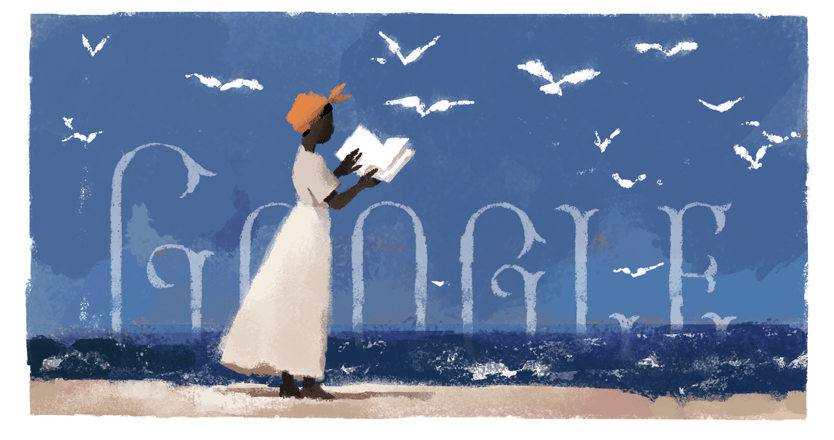October 1, 2018
Mary Prince’s 230th Birthday
On this day in 1788, Mary Prince was born in Brackish Pond, Bermuda. Sold from master to master throughout her life, Prince ended up on the island of Antigua in 1815 where she joined the Moravian church in 1817 and learned to read. Despite not having received a formal education, Prince went on to be recognized as a National Hero of Bermuda for her work to abolish slavery.
In December 1826 Prince married Daniel James, a former slave who had managed to buy his freedom. Her master at the time punished her for marrying a free black man with permission and in two years time the husband and wife were separated because Prince’s family moved to England taking her with them.
After the passage of Great Britain’s Slave Trade Act in 1807, slavery was no longer allowed in England, although the institution of slavery continued in the British colonies. Prince was legally free on British soil, but she had no means to support herself. Under the prevailing rules of the time, if she tried to return home to her husband, she would risk being enslaved again.
In 1829 Prince became the first woman to present a petition to Parliament, arguing for her human right to freedom. That same year some of her associates in the anti-slavery “abolitionist” movement introduced a bill proposing that any West Indian slave brought to England by his or her owners must be freed. It did not pass, but momentum was beginning to shift in favor of the abolitionist cause.
Two years later Prince published her autobiography, making her the first black woman to publish a slave narrative in England. Her book played a decisive role in turning British public opinion against the centuries-old institution of human enslavement.
“I have been a slave myself,” Prince wrote in The History of Mary Prince, a West Indian Slave. “I know what slaves feel—I can tell by myself what other slaves feel, and by what they have told me. The man that says slaves be quite happy in slavery—that they don't want to be free—that man is either ignorant or a lying person. I never heard a slave say so.”
Published in 1831, the book caused a sensation, going through three printings in the first year alone. In one of the book’s many heartbreaking passages, Prince recalled being sold “like sheep or cattle” on the same day as her younger sisters Hannah and Dina were sold to different masters. “When the sale was over, my mother hugged and kissed us, and mourned over us, begging of us to keep up a good heart, and do our duty to our new masters. It was a sad parting; one went one way, one another, and our poor mammy went home with nothing.”
Two lawsuits for libel were filed against the book’s publisher in 1833, and Mary Prince testified at both, effectively rebuking any claims that the book was inaccurate or defamatory. After that there is no record of her movements—she may have stayed in England or returned home to her husband in Bermuda.
On August 1, 1838, some 800,000 slaves living in British colonies throughout the Caribbean were finally set free, following the passage of Great Britain’s Slavery Abolition Act, which was passed by Parliament two years after the publication of Mary Prince’s book.
Happy Birthday Mary Prince!
Results 1 to 50 of 17196
Thread: Google doodles
Threaded View
-
08-02-2021, 12:51 PM #11
 Senior Member
Senior Member

- Join Date
- Oct 2016
- Posts
- 20,748
- Rep Power
- 467






 Reply With Quote
Reply With Quote


Bookmarks